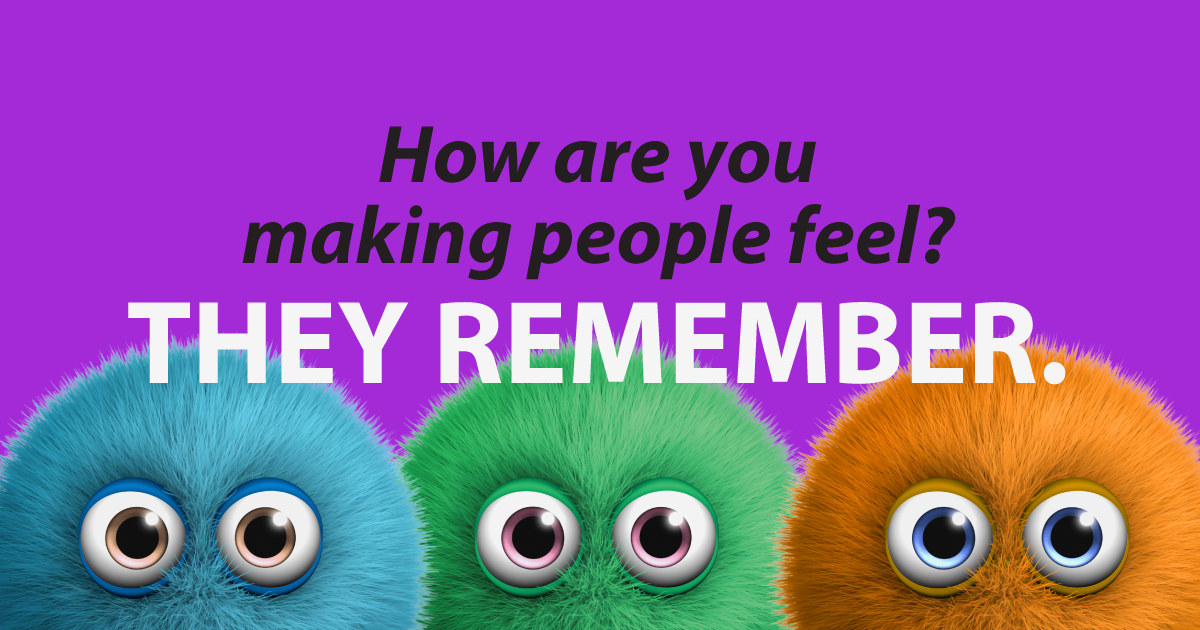
Soft impacts and hard numbers
You’ve probably seen this quote from Maya Angelou:
“I’ve learned that people will forget what you said, people will forget what you did, but people will never forget how you made them feel.”
Maya Angelou
It’s a simple, but powerful truth. And it’s why credit unions at their best pay careful attention to those “soft impacts” – how are they making their members feel?
These soft impacts are just as important as the hard numbers for credit unions and other purpose-driven organizations.
What are your members feeling?
Emotions drive behavior, so you need to know what your members are feeling, and have a clear vision of how you want them to feel.
What are they anxious about? What are they hoping for? How can your credit union help them feel proud, hopeful, involved, empowered, knowledgeable, wise, heard, respected, interested, interesting, valued, seen, understood, or strong?
What’s the right “mix” for your CU? What emotions do you want members to feel, and how is that unique?
These are important questions. How are you learning about and tracking how your members feel? How are you tracking these “soft impacts” as you make decisions?
Purpose in action equals impact
The past few years have been, well… you know. One of the most consistent things we’ve learned throughout was that the credit unions most connected to their Purpose and their members were the ones that had the most success and the most impact.
Many of the decisions that had to be made in the last few years could not be made with numbers. There just weren’t any precedents or projections sometimes. And sometimes the right thing to do is not what the numbers tell you.
In every crisis, credit union leaders with a clear Purpose, and who pay careful attention to human feelings, know just what to do.
Look at the downsides of old processes
Be honest. How many members feel shame when they’re rejected for a loan, incur NSF fees, or don’t understand why their debit card declined?
How many members feel dumb when they don’t understand all the jargon? Are people feeling excluded because there’s no one that looks like them in the branches, or they’re being deadnamed, or forced to show an old ID?
How can you change that?
Pay close attention to your processes and responses. For example, a declined loan should never be a machine-generated “no” and a form letter. But it can and should be an opportunity to have a positive experience. Invite a conversation, help your member learn and plan, help find a better solution, and build a lifetime relationship.
Be there for the bad times
Do members feel like they can trust your credit union if they lose their job, get sick, or are dealing with medical bills, a death, a divorce, or a custody battle?
All these are normal, common life events that have a huge financial impact. Are you helping members learn, plan, and cope, and inviting them to reach out during difficult times?
Or are you only there for them when they have “A” credit and want to buy a car?
If you’re there for your members during the bad times, they’ll remember how you made them feel. And they’ll be there for the good times too.
This is what credit unions are made for
Soft impacts are, or should be, a powerful credit union strong suit. To carry out a Purpose you have to value, track, and be governed by the “soft impacts” just as much as or more than the numbers.
Whether you call it “Purpose”, “soft impact”, “the human touch”, “love” or something else, this is where the credit union difference has the greatest potential.
How are you making people feel? They remember.
- CU Numbers Need Marketing Love, Too - April 2, 2024
- Will it blend? The only CU fintech question that matters. - February 13, 2024
- Solving the CU marketing “now what?” problem - January 16, 2024
